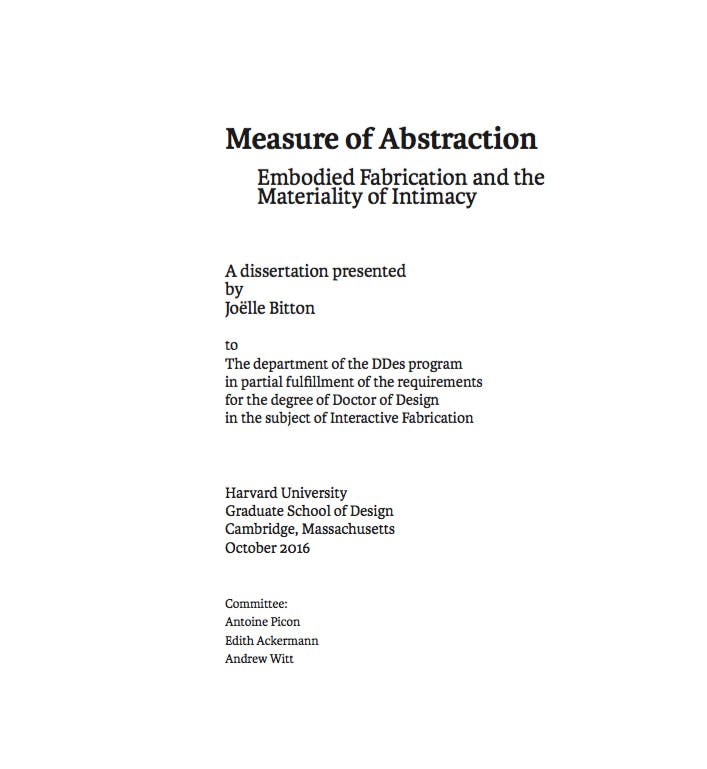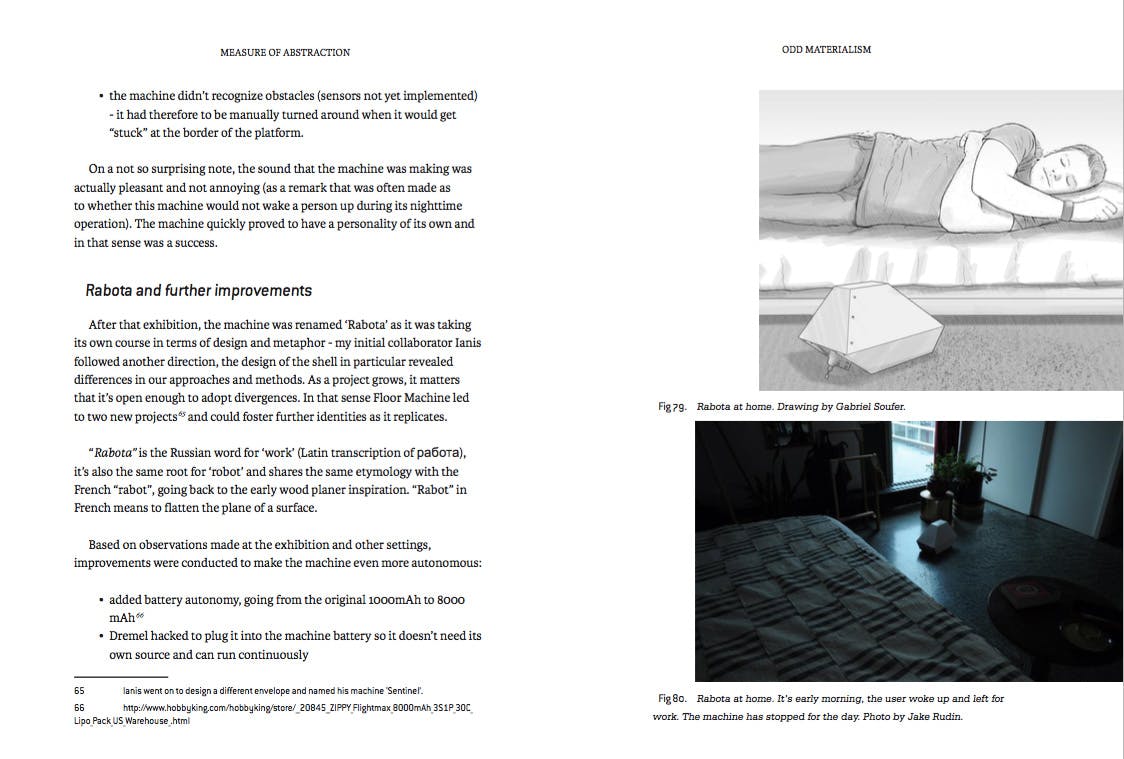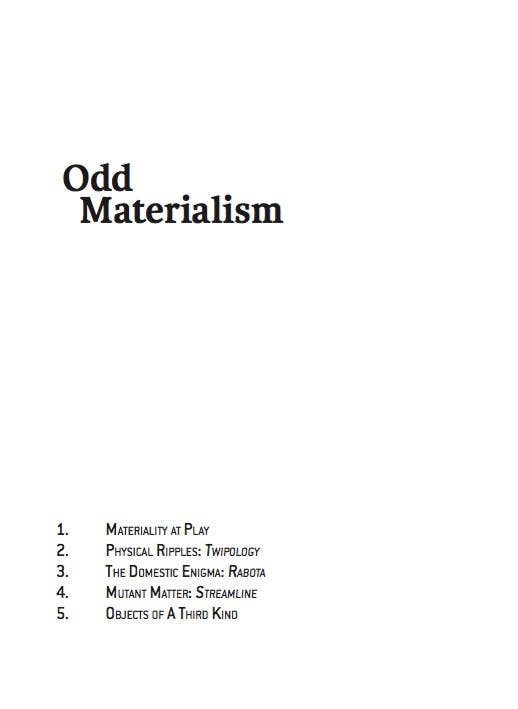Abstract:
This thesis presents a theoretical and practical research conducted for 4 years on interactive fabrication.
Interactive fabrication is an emerging field and takes as a starting point with the numerical control of digital fabrication machines, modulated with parameters of interactivity.
I approach digital fabrication as an ambiguous technology in the ways it articulates the digital with the material, the shapeless with the finite, the abstract with the concrete. As the realm of digital fabrication expands into mainstream culture and maverick machines rise again, there is an opportunity to tamper with expectations of precision and proficiency.
Interactivity is the modus operandi for such experimentation: embracing time, latency, distance and the “decor of everyday life” as conditions. Personal data such as emails, text messages or sleeping data can turn
into parameters of control of a CNC-machine, supplanting the typical predetermined file. This is the premise for a human-machine companionship or ‘embodied fabrication’.
3 art projects, Twipology, Rabota and Streamline have been prototyped to enact these possibilities. The fabricated outcomes move beyond functional or ornamental categories, inspiring a mutating and odd materiality, one
of intimacy. These objects are objects of a third kind, “born witness” of a moment of interaction with the material world.
This thesis is an ‘undisciplinary’ endeavor, proposing a research method involving art, design, ontology and HCI considerations.
Info & Credits
Author:
Joëlle Bitton
Year:
2012-2016
University:
Harvard University Graduate School of Design
DDes advisors:
Antoine Picon, Edith Ackermann, Andrew Witt




